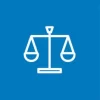All companies in Switzerland, including large, small or medium-sized enterprises and startups are required to take out occupational accident insurance for their employees. They are also required to take out non-occupational accident insurance for employees working more than eight hours per week.
This is done via a company accident insurance plan which covers employees both against accidents in the workplace and in their leisure time (if the employee works more than 8 hours per week).
Federal, industrial and construction companies must register with government-sponsored accident insurance provider Suva. All other employers are free to choose their accident insurance provider themselves. There are numerous occupational accident insurance providers in Switzerland. Major insurance companies which offer accident insurance for employees include Allianz, Axa, Baloise, Helsana, Mobiliar and Zurich.
What accident insurance do you have to get for your employees?
The coverage provided by compulsory accident insurance is laid out in the Federal Accident Insurance Act (UVG). All insurance providers which offer compulsory accident insurance for employees must provide at least the stipulated coverage. In this regard, Swiss accident insurance is similar to Swiss compulsory health insurance. However, unlike health insurance, the insured person is not obligated to pay a deductible or a copayment when claiming benefits.
The obligatory accident insurance covers all of the costs of treatment for injuries sustained in an accident, including doctor and dentist visits, medication, hospital stays (general ward), compensation for lost income after the third day of absence (80 percent of salary), life-long benefits in the case of permanent disablement (80 percent of salary), and survivor’s benefits to provide for the insured person’s dependents in the case of their death.
More comprehensive coverage is available on an optional basis via supplementary accident insurance policies. However, these come at an additional cost to the employer or employee.
Accident insurance: who pays what?
The choice of which insurance policy to take out is up to the employer, but has a direct effect on employees as well. Employers are required to pay the premiums for occupational accident insurance (accidents in the workplace). Employees must pay the premiums for non-occupational accident insurance. These are generally deducted directly from employee salaries. Important: Employers may cover non-occupational accident insurance premiums as an employee benefit if they choose to.
The non-occupational accident insurance premiums paid by employees are many times higher than occupational accident insurance premiums paid by the employer. Premiums vary between insurance providers. An insurance provider may offer very low occupational accident insurance premiums to make their offer attractive to employers, while charging very high premium for the non-occupational accident insurance which must be paid by the employees. Typically, non-occupational accident insurance premiums are twelve to thirteen times higher than occupational accident insurance premiums, but they can be as much as fifteen times higher.
How are premiums calculated?
Comparing premiums is interesting both for employers and employees. On Swiss policies, final premiums are shown as a pro mille (‰) in relation to a salary. All charges are included in this sum, including the costs of administration and accident-prevention. Premiums for men and women are normally shown separately.
The risks which employees are exposed to is a defining factor in determining accident insurance premiums. For example, accident insurance premiums are lower for office workers than for craftspeople. Because of this, premiums may vary depending on the nature of your company. Insurers generally do not provide much information about the logic used to calculate risk across employees.
Some insurers charge minimum insurance premiums for combined occupational and non-occupational accident insurance (100 francs per employee, for example). In this case the pro mille-based premiums based on employee salaries only apply if they are higher than the minimum premium.
Example:
The combined payroll of an office-based small business totals 1 million francs. The premium the company must pay for occupational accident insurance comes to 0.92‰ while the cost of non-occupational coverage totals 11.07‰. The company’s annual premium in this case comes to 11,990 francs.
Paying insurance premiums correctly
Premiums are generally paid in advance, ahead of the coming year. Paying the entire premium as a lump-sum is cheaper than paying it off in installments. For example, paying your premiums quarterly may add up to 2% to your total insurance bill.
If an employee's salary increases or decreases, the change should be reported promptly. In any case, premiums will be adjusted in arrears.
Thousands of francs in potential savings for you and your employees
Premiums vary in a big way from policy to policy. Comparing offers ahead of time can save your company and employees thousands of francs per year.
Unfortunately, accident insurance providers do not openly publish their premium schedules. A reason for this is that premiums are very specific to the risk posed to accident insurance providers based on the nature of the work done by employees. The only way to find out how much you could save is to request multiple quotes and compare the premiums. Get as many accident insurance quotes as possible. Over the long-term, using the insurance with the lowest premiums can save your business and your employees significant amounts of money.
How to get free quotes
Getting quotes for compulsory accident insurance can be done quickly and at no cost. Normally, only basic information is required. Be ready to provide the name, address and legal status of the company, the employee payroll total (divided between men and women), and in some cases also the number of employees.
You do not have to provide the names of your employees or the exact allotment of salaries. Information about the nature of your business will generally be required in order for insurers to properly assess risk. Insurers will also check your company information as recorded in the commercial register.
Tips for choosing the right accident insurance
- Always request quotes from multiple insurers and compare the premiums.
- The risk category your company is placed into makes a big difference in the premiums you pay. But the exact definitions of which companies fall into which category are flexible. Do not be afraid to negotiate for a more favorable category placement which better aligns with the real risk.
- If you can prove that your company has had few or no accidents in the past, make sure to mention this. You may be eligible for major claims-free discounts.
- If your company needs other insurance coverage (sick-leave insurance, for example) in addition to accident insurance, make sure to ask each insurance provider for a combined quote for all needed coverages. Multiple-policy discounts can knock 5% off combined premiums.
- Stick to annually-renewable policies. These offer more flexibility as you can easily migrate to a different insurance provider if your company's situation changes or a better offer comes up.
- Pay the annual premium in full as a lump-sum when possible. This can save you up to 2%.
- Review the interim accident insurance offered. Accident insurance providers generally offer interim accident insurance as well. Employees who are being laid off or taking a furlough can can take out this insurance. Interim accident insurance gives former employees the same coverage they enjoyed while employees for up to 6 months after they leave your employment. You can find out more about interim accident insurance here.
More on this topic:
Swiss compulsory accident insurance explained
Sick leave insurance for Swiss employers explained
Business bank accounts compared
Interim accident insurance explained











